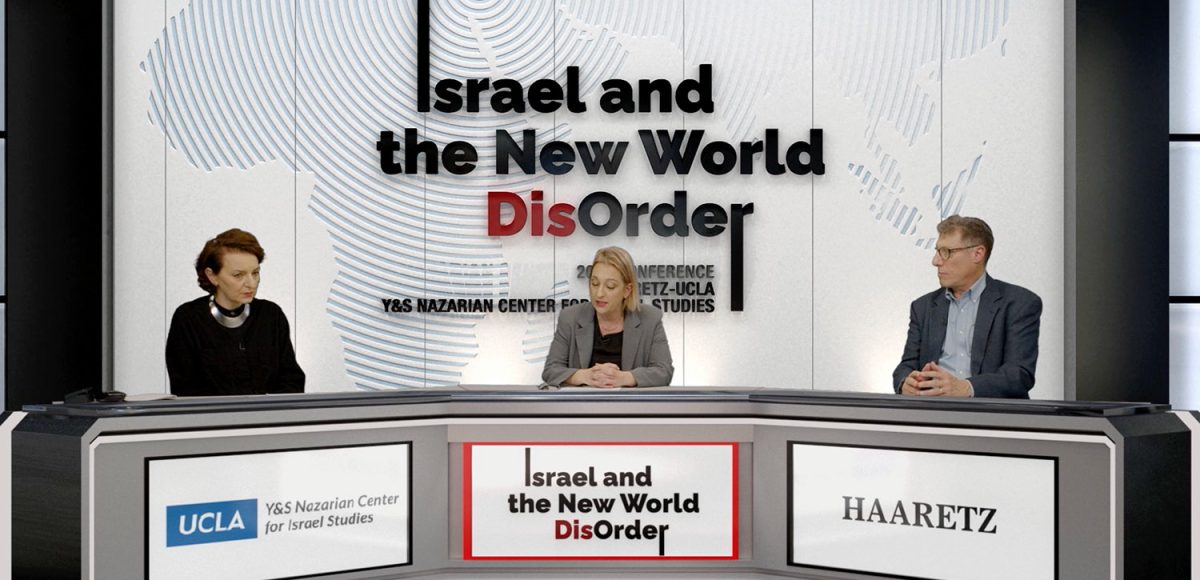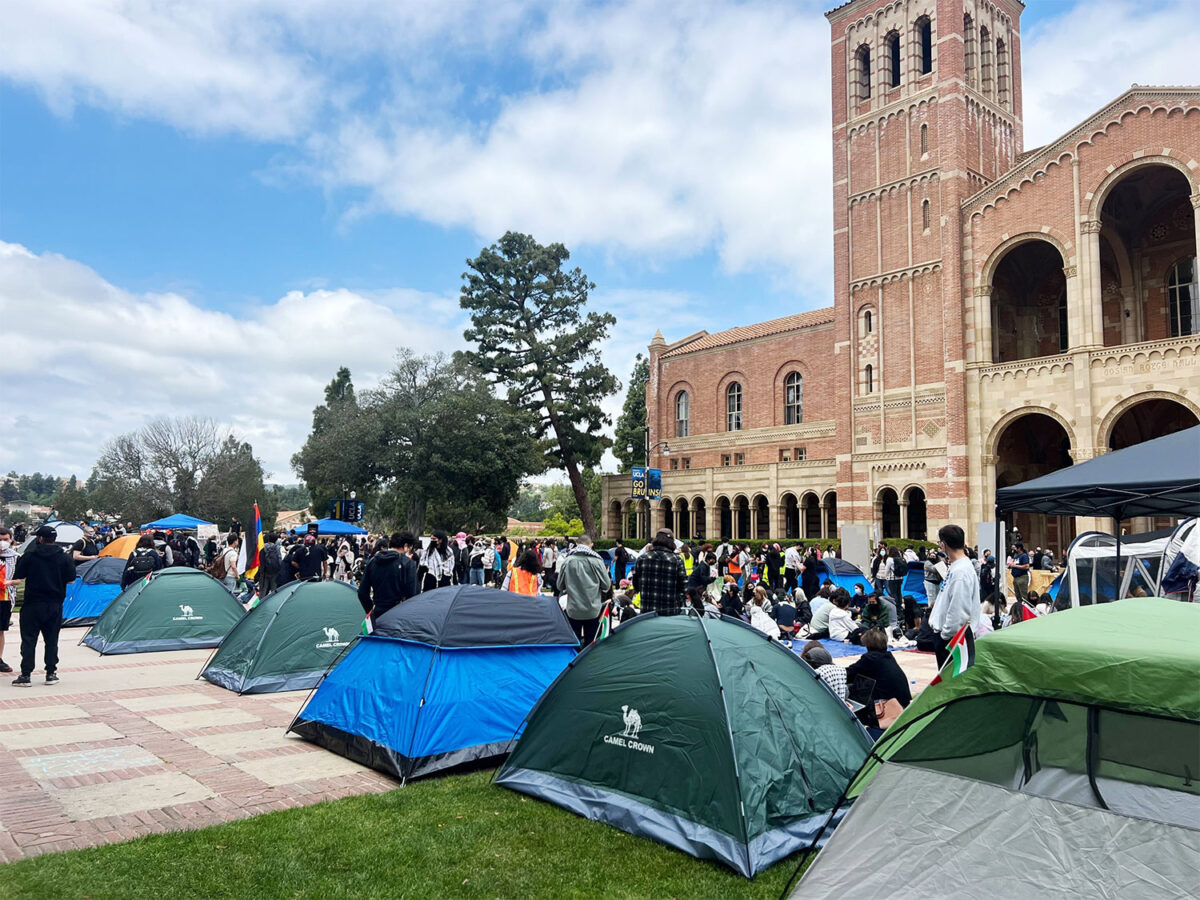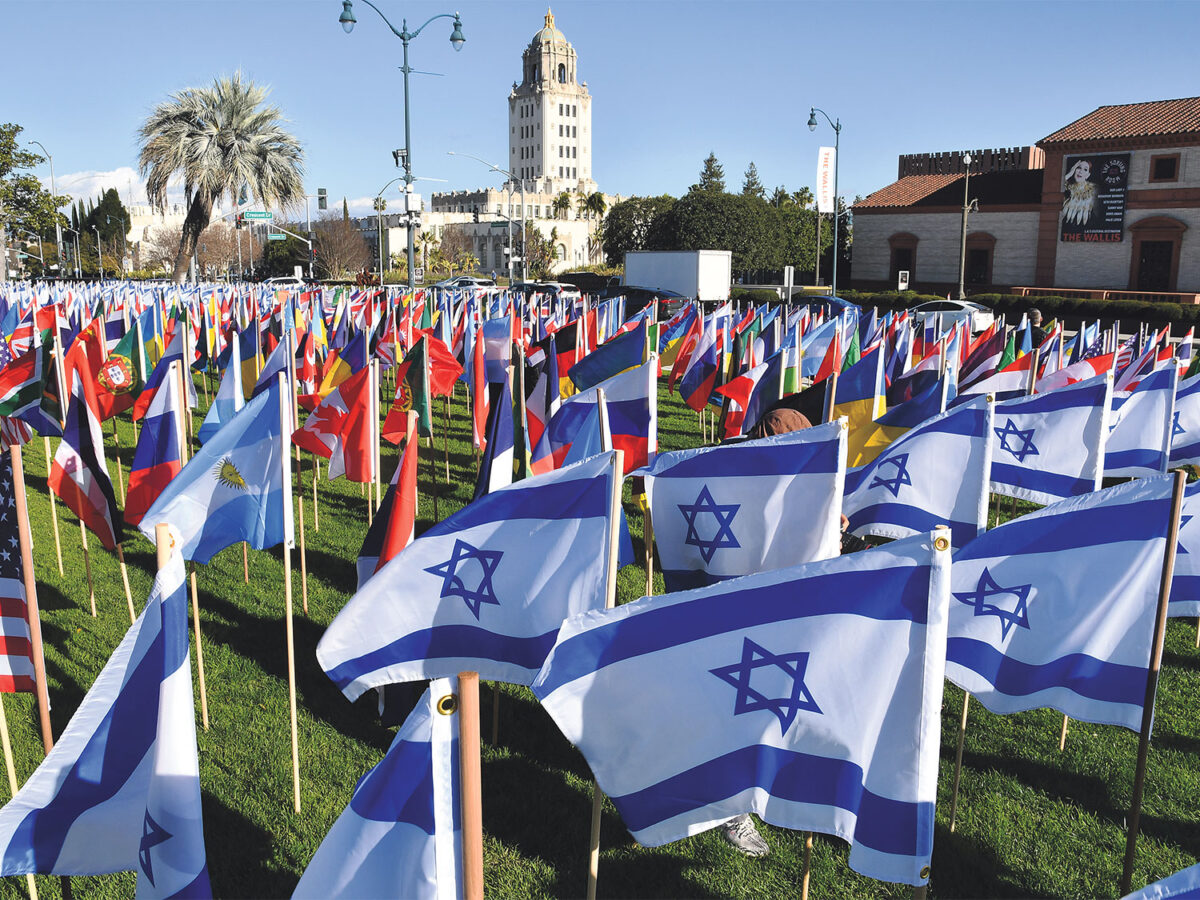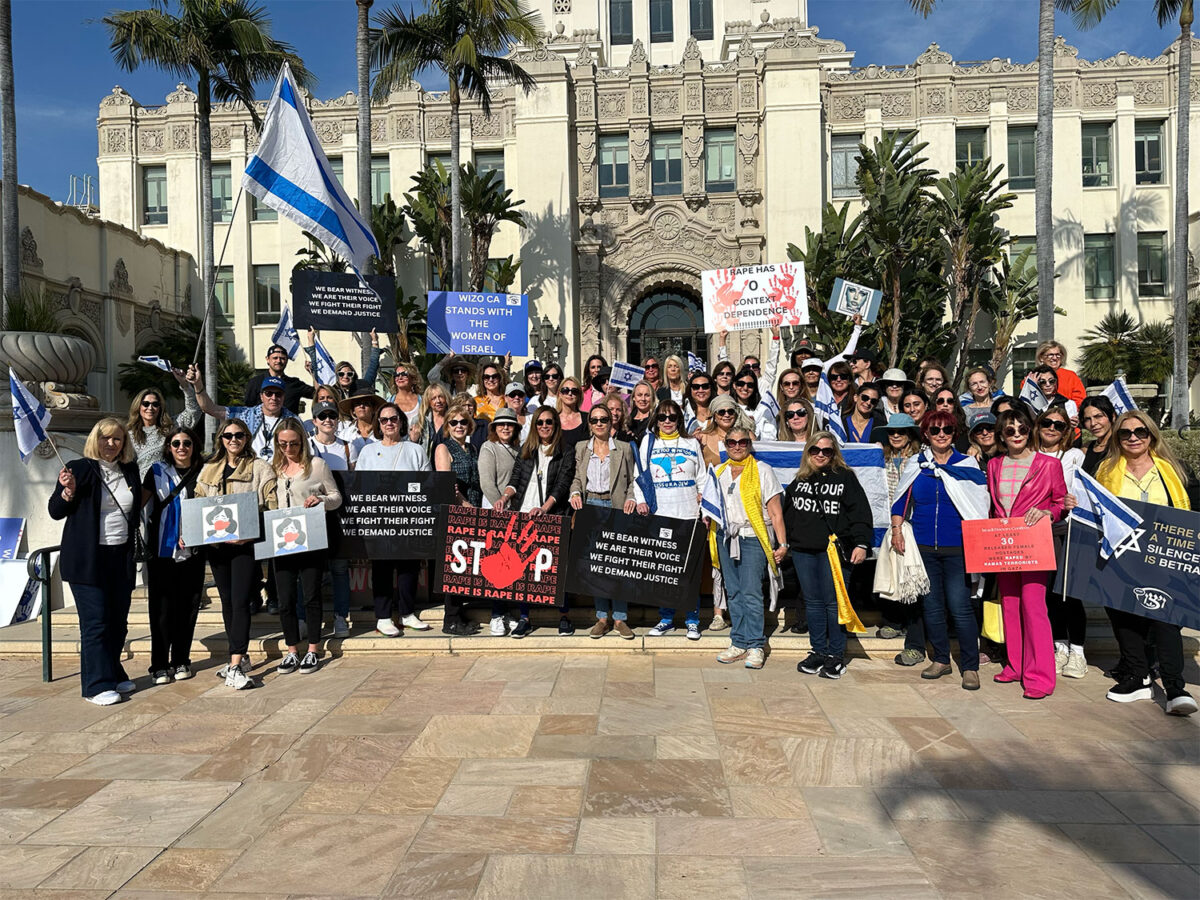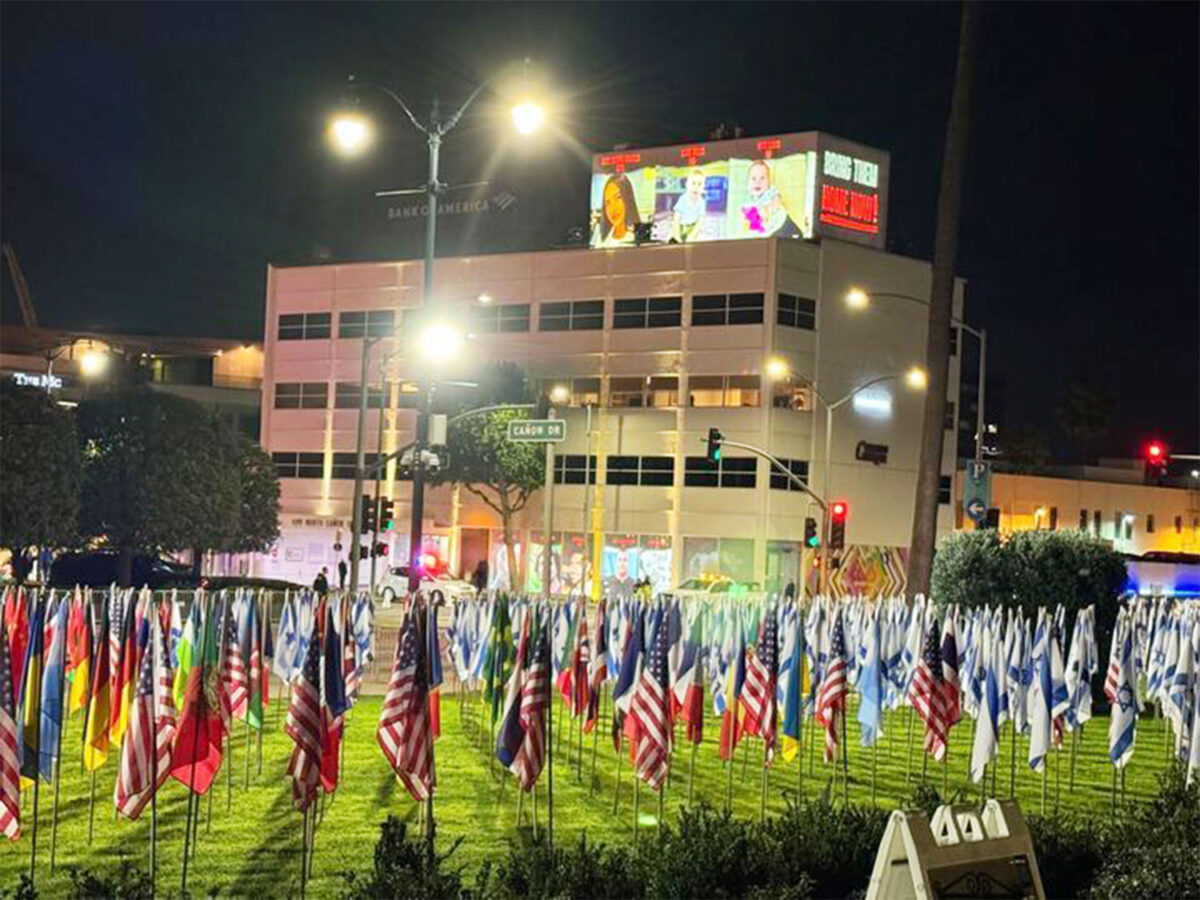Is the two-state solution dead, Amir Tibon asked Tony Blair, referring to the uncertain prospects of peace between Israel and the Palestinians?
“I don’t know what the alternative scenario actually is,” Blair said. “The reality is the State of Israel is here to stay,” and the Palestinians aren’t leaving. So, you can have a debate about what a two-state solution means, but any agreement will be some form of a two-state solution.
The pragmatic back-and-forth between an Israeli journalist and a former prime minister of Britain occurred during “Israel and the New World (Dis)Order,” a virtual conference that featured a variety of speakers–journalists, security experts, elected officials and diplomats–discussing Israel’s foreign policy, foreign relations and the soon-to-be-75-year-old country’s expanding role on the global stage.
The conference streamed live on March 5 and was organized jointly by the UCLA Y&S Nazarian Center for Israel Studies and leading Israeli newspaper Haaretz. The Diane and Guilford Glazer Foundation underwrote the program.
While the agenda did not explicitly include an examination of current events unfolding inside Israel–the country is immersed in domestic conflict over a proposed overhaul of the judicial system; many, especially those on the political left, are worrying about Israel’s future as a democratic country–the topic proved unavoidable for many conference participants.
“The gap between the two different parts of Israel now, the two different camps, is very wide and very deep,” Tzipi Livni, one of the program’s high-profile speakers, said.
Blair, a longtime, prolific supporter of the Jewish state–his organization, the Tony Blair Institute for Global Change, has an office in Israel–is an ardent observer of events in the region. During the conference, he highlighted the importance of the peace agreements between Israel and several Arab countries, signed during the Trump administration.
“I think the Abraham Accords was a hugely significant agreement and event,” Blair said. “The path is now open for Israel to become an accepted member of the region.”
He spoke about the essential role religious tolerance and an embrace of world markets play on the international stage.
“The world belongs to the open-minded today,” Blair said.
The event marked the second time the UCLA Nazarian for Israel Studies and Haaretz partnered on a virtual conference. In 2021, the two held a similar virtual event focused on Israeli national security, drawing an estimated 20,000 people that watched the event live or viewed a recording available on several platforms, including Facebook and YouTube.
Viewing numbers for this year’s conference were not immediately available.
While many of the speakers expressed criticism of the current Israeli government, which is comprised of a political party considered far-right, Professor Dov Waxman, director of the UCLA Nazarian Center, dismissed the event as biased against the Jewish State. Any negative feedback about the conference’s content would stem from a misunderstanding of the Nazarian Center’s mission, he explained.
“It’s not about Israel advocacy,” Waxman said in a phone interview. “It’s about providing informed, nuanced conversation about Israel and anyone who watched the conference would’ve come away with that. These are serious issues being given serious attention. It’s not about Israel advocacy, and it’s not about Israel bashing either.”
This year’s program included a conversation with Livni, a former member of the Israeli Knesset (parliament).
Tackling current issues facing Israel head-on, Livni said for years she felt alone when speaking out against threats to Israeli democratic values. But with the protest movement in Israel galvanizing significant portions of the public, she no longer feels that way.
“Now it’s so good to see hundreds of thousands of people taking the streets,” she said. “It’s wonderful.”
Additional speakers included Israel’s Ambassador to the U.S. Michael Herzog, who emphasized the continuing strength of the U.S.-Israel relationship.
“We do not have a closer ally than the United States,” Herzog said. “We help each other and do a lot together.”
Other participants discussed the foreign policy issue consuming much of the international community: the ongoing war in Ukraine, an unprecedented global event. The UCLA conference featured a one-on-one conversation between Ukraine’s Ambassador to Israel Yevgen Korniychuk and Haaretz Senior Correspondent/Columnist Anshel Pfeffer.
The two discussed Israel’s controversial stance of neutrality toward Russia’s invasion. While countries including the U.S. and Germany have provided defense equipment to Ukraine, Israel has been reluctant to help beyond humanitarian support, not wanting to alienate Russia.
Korniychuk signaled Israel’s position might be evolving.
“Israel is slowly changing its policy towards Ukraine We are grateful for the humanitarian aid, but you can’t win the war with bandages and antibiotics,” the Ukrainian leader said.
Additional speakers at the morning-long conference included Susan Glasser, a journalist at the New Yorker; Daniel Gordis, the Koret distinguished fellow at Shalem College in Jerusalem; and Eva Illouz, a professor of sociology at Hebrew University of Jerusalem.
While Gordis is a steadfast supporter of Israel, and Illouz more willing to criticize the Jewish State, the two shared the view that Israel’s on a dangerous path if it moves forward with plans to reform its judicial system plans that would give Israel’s legislative branch override power over Israeli supreme court decisions.
Waxman welcomed the unexpected consensus between the two influential thought leaders, saying, “That really surprised me.”
“Israel and the New World (Dis)Order” continues to be available for viewing on the UCLA Nazarian Center website. To watch the conference, visit international.ucla.edu/Israel.



